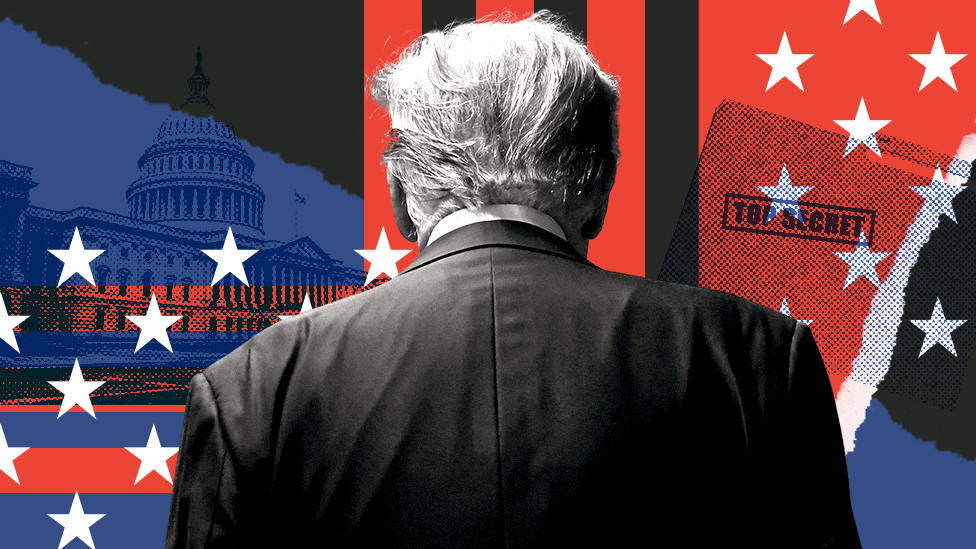Donald Trump found guilty on all counts in historic criminal trial
How Donald Trump's historic guilty verdict unfolded
- Published
Donald Trump has been found guilty on all counts in his historic New York criminal trial, becoming the first former or sitting president to be convicted of a crime as he makes a bid to return to the White House.
A panel of 12 Manhattan jurors unanimously convicted him on 34 counts of falsifying business records on Thursday, with sentencing now set for 11 July.
Over a six-week trial, the court heard from 22 witnesses, including Stormy Daniels, whose alleged sexual encounter with the former president was at the centre of the case.
Trump, 77, called the verdict a "disgrace", adding: "We'll fight to the end."
The former president was accused of having concealed a payment to buy the silence of Ms Daniels, a former adult-film star, in the final days of his 2016 election campaign.
Prosecutors had argued that, by approving a scheme to disguise the money as legal expenses, Trump broke election law.
LIVE: Latest updates on the Donald Trump verdict
- Published30 May 2024
A guide to Trump's four criminal cases
- Published28 August 2024
What Trump's conviction means for the election
- Published30 May 2024
His sentencing will come just days before the start of the Republican National Convention, when he is due to be confirmed as the party's candidate to face Joe Biden, the Democratic incumbent, in November.
While he could in theory face prison, a financial penalty is seen as the more likely punishment. For now, Trump has been released without having to pay bail.
The former president pursed his lips and turned to look at the jurors as they delivered their guilty verdicts, which came after two days of deliberations.
Amid a massive police presence outside court afterwards, Trump said: "This was a disgrace. This was a rigged trial by a conflicted judge who was corrupt."
He added that the “real verdict" was "going to be 5 November by the people" and that "this is long from over".
As he spoke, hundreds of onlookers gathered and a helicopter circled overhead.
He was expected to speak again to media in front of Trump Tower in New York City on Friday morning.
BBC reporter in court describes what Trump did after guilty verdict
At a news conference, Manhattan District Attorney Alvin Bragg declined to comment on whether he would seek a prison term for Trump.
Asked about criticism of the case - his predecessor had opted not to bring the charges against Trump - the Democratic prosecutor said: "I did my job."
"Our job is to follow the facts without fear or favour, and that's what we did here."
The conviction does not prevent Trump from standing in November's election, but he is almost certain to appeal against it regardless.
It is unclear how the verdict will affect the presidential race, although some polls have previously suggested voters in several key swing states would be less likely to vote for Trump if he had a criminal conviction.
Brian Hughes, a senior adviser to the Trump campaign, said its digital fundraising system had seen a record number of supporters following the verdict.
If Trump were to defeat Mr Biden, he would become the first convicted criminal to occupy the White House.
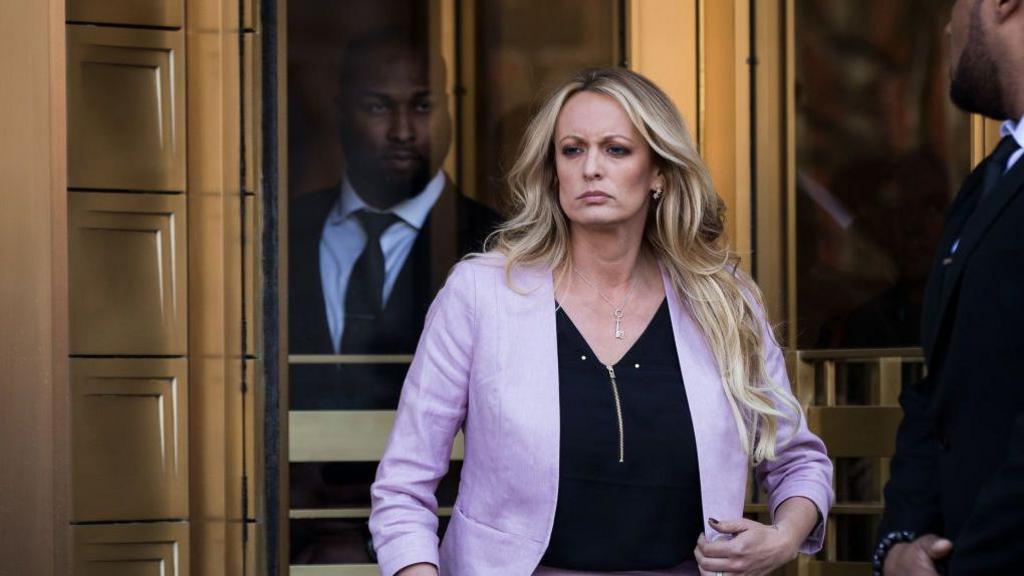
Trump has repeatedly denied the allegations made by Stormy Daniels
Trump's political allies issued statements in his defence after the verdict.
US House of Representatives Speaker Mike Johnson said it was a "shameful day in American history" and symbolic of the "weaponisation" of the justice system to "silence dissent".
Asa Hutchinson, a former governor of Arkansas who ran against Trump for this year's Republican presidential nomination, said it was "not easy to see a former president and the presumptive GOP nominee convicted of felony crimes" but that the "jury verdict should be respected".
The Trump campaign is expected to be watching closely to see which Republicans speak out in his defence and which others might break ranks in support of the judicial process.
A source close to Trump described the situation to the BBC’s Katty Kay as a “GOP civil war”.
The Biden-Harris campaign said the verdict showed no one was "above the law".
"There is still only one way to keep Donald Trump out of the Oval Office: at the ballot box," campaign spokesman Michael Tyler said.
A statement from Ian Sams, a spokesman for the White House Counsel’s Office, said: “We respect the rule of law, and have no additional comment.”
During the trial, the prosecution set out to prove that Trump had falsified records when he repaid his former lawyer Michael Cohen for a $130,000 hush-money payment to Ms Daniels.
They said he had recorded the reimbursements as legal expenses in order to circumvent campaign finance laws.
Todd Blanche, Trump's lead lawyer, told Justice Juan Merchan that the court should not allow the verdict, arguing that Cohen committed perjury on the stand.
The Trump team's motion to acquit, however, was denied by Justice Merchan.
In a statement posted on X, formerly Twitter, Cohen said that the verdict was an "important day for accountability and the rule of law".
"The truth always matters," he added.
Trump was required to sit in the Manhattan court for the duration of the trial, which kept him largely off the campaign trail.
But he launched near-daily attacks on Mr Biden, arguing that the case brought by Manhattan's district attorney was politically motivated.
The former president faces three other criminal cases, including two of alleged election interference, but it looks unlikely that those trials will begin before the presidential election on 5 November.
- Published30 May 2024
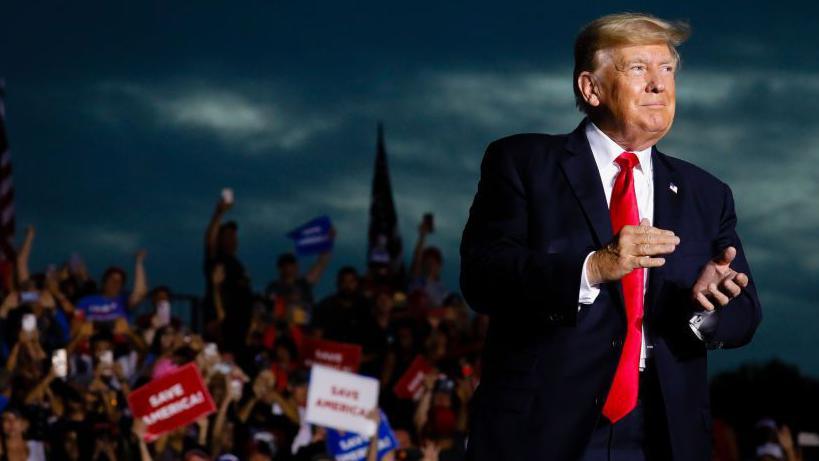
- Published30 May 2024
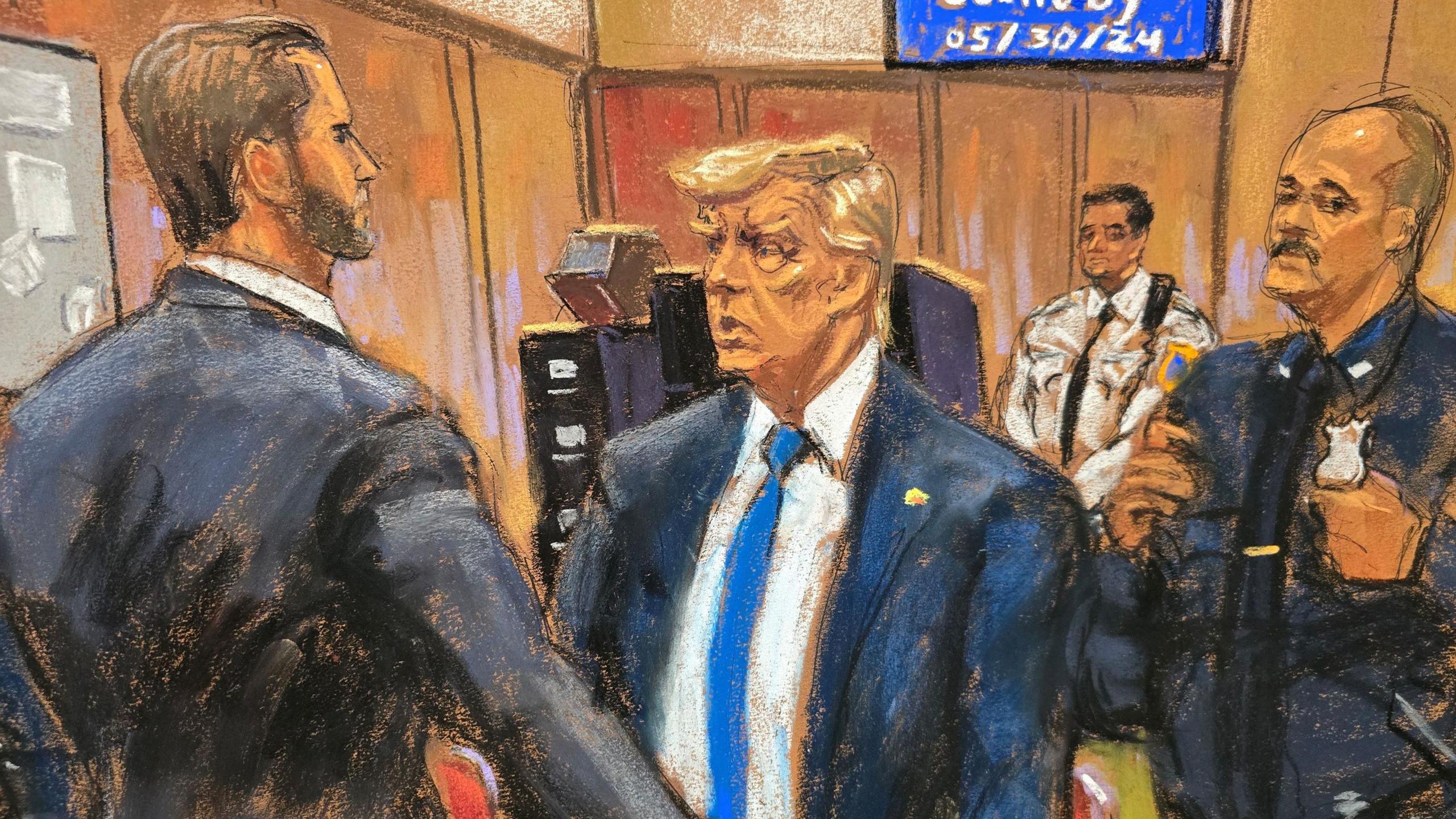
- Published31 May 2024
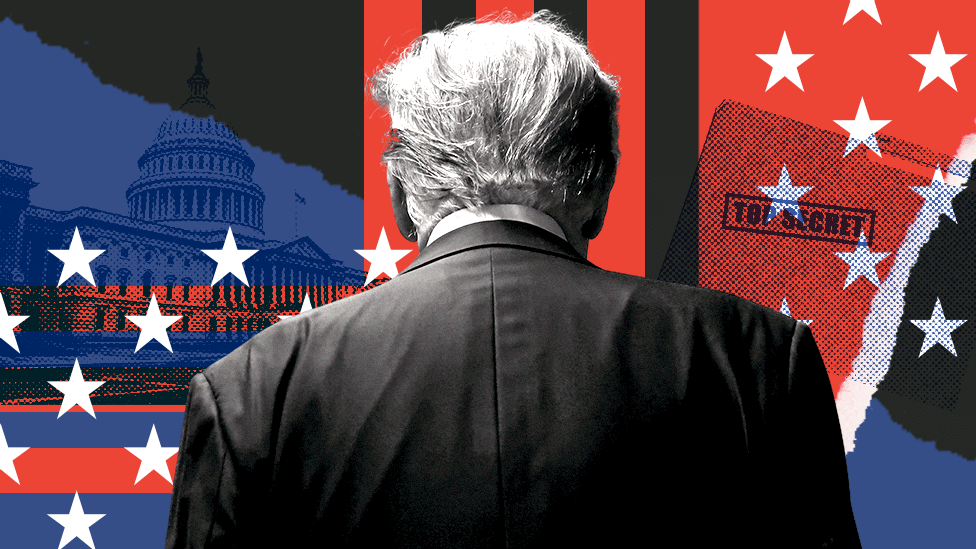
- Published3 May 2024
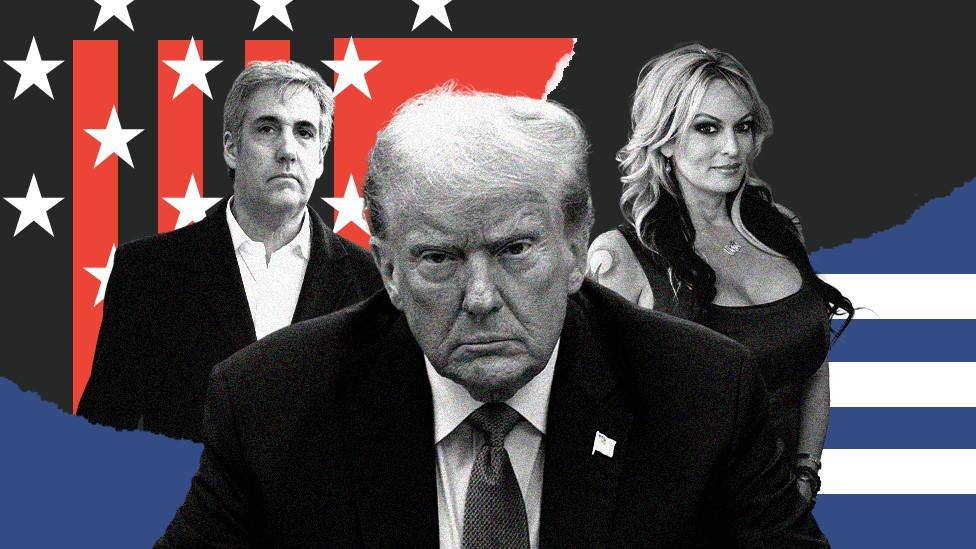
- Published28 August 2024
